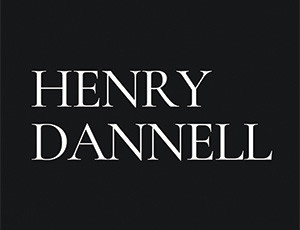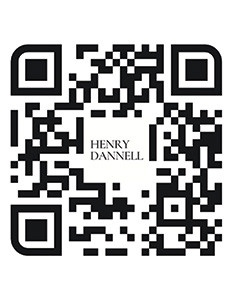*/

By Kem Kemal of Henry Dannell
As a self-employed barrister, your income can vary significantly, due to case timings, the nature of your work, and the accounting methods you employ. These fluctuations, while common in the profession, can pose unique challenges when it comes to major financial decisions like securing a mortgage.
Understanding how your income patterns impact mortgage applications is crucial to presenting a strong financial profile to lenders. With the right approach, you can navigate these complexities and present a clearer picture of your earning potential, making it easier to secure the mortgage you need.
The way income is reported can significantly affect how it appears on paper. For instance, your income might seem lower than it actually is when comparing accrual accounting to cash accounting periods. This discrepancy occurs because accrual accounting recognises income when it is earned, whereas cash accounting recognises it when it is received. As a result, the timing of income recognition can cause significant variations in reported earnings.
Accrual accounting, which records income when it is earned, may show your income more evenly over time, smoothing out the peaks and troughs. However, it might also capture earnings that have not yet been received in cash, which can present liquidity issues. On the other hand, cash accounting shows actual cash flow, highlighting periods of high and low earnings more starkly. This method may more accurately reflect your immediate financial reality but might not give the best picture of your earning potential over the longer term.
The choice between these accounting methods becomes particularly relevant when applying for a mortgage. Lenders often prefer to see stable and predictable income patterns, which can be difficult to demonstrate with cash accounting if income is irregular. In contrast, accrual accounting can sometimes present a more favourable view of income stability, but it requires careful management to ensure it aligns with your actual cash flow.
Mortgage lenders typically assess income to determine how much they can lend. If your income appears lower due to the accounting method used, it might affect your mortgage affordability. This makes the choice between accrual and cash accounting an important decision with substantial financial consequences.
A mortgage adviser who understands the intricacies of accounting for self-employed barristers can provide valuable guidance. They can help ensure that the income figures presented for mortgage applications accurately reflect your true earning potential, which can be the difference between securing a loan and facing rejection. At Henry Dannell, we can support you.
You might take a career break for reasons such as maternity or paternity leave, or other personal circumstances. Such breaks can lead to a significant decrease in income, followed by a sharp increase upon your return to full-time practice. These ebbs and flows are normal but can complicate mortgage applications and financial planning.
In scenarios where a higher borrowing amount is necessary, it becomes even more critical to work with a lender who understands the unique nature of your income. Such a lender will be able to recognise that a dip in income due to a career break is a one-off event rather than a sign of financial instability. They should be able to disregard that particular year when assessing your overall financial health and loan eligibility.
At Henry Dannell, we’ve had the privilege of guiding countless barristers through the intricacies of mortgage applications, ensuring they receive the financial support they need to achieve their goals. By leveraging our deep understanding of the legal profession, the specific income structures of barristers, and our dedicated pilot schemes with lenders designed for barristers, we are able to navigate challenges and secure you favourable terms.
Our expert advisers can guide you through the complexities of fluctuating income and help you present a compelling financial picture.


Disclaimer
A mortgage is secured against your home. Your home may be repossessed if you do not keep up repayments on your mortgage or any other debt secured on it. Mortgage deals may not be available, and lending is subject to individual circumstances and status.

As a self-employed barrister, your income can vary significantly, due to case timings, the nature of your work, and the accounting methods you employ. These fluctuations, while common in the profession, can pose unique challenges when it comes to major financial decisions like securing a mortgage.
Understanding how your income patterns impact mortgage applications is crucial to presenting a strong financial profile to lenders. With the right approach, you can navigate these complexities and present a clearer picture of your earning potential, making it easier to secure the mortgage you need.
The way income is reported can significantly affect how it appears on paper. For instance, your income might seem lower than it actually is when comparing accrual accounting to cash accounting periods. This discrepancy occurs because accrual accounting recognises income when it is earned, whereas cash accounting recognises it when it is received. As a result, the timing of income recognition can cause significant variations in reported earnings.
Accrual accounting, which records income when it is earned, may show your income more evenly over time, smoothing out the peaks and troughs. However, it might also capture earnings that have not yet been received in cash, which can present liquidity issues. On the other hand, cash accounting shows actual cash flow, highlighting periods of high and low earnings more starkly. This method may more accurately reflect your immediate financial reality but might not give the best picture of your earning potential over the longer term.
The choice between these accounting methods becomes particularly relevant when applying for a mortgage. Lenders often prefer to see stable and predictable income patterns, which can be difficult to demonstrate with cash accounting if income is irregular. In contrast, accrual accounting can sometimes present a more favourable view of income stability, but it requires careful management to ensure it aligns with your actual cash flow.
Mortgage lenders typically assess income to determine how much they can lend. If your income appears lower due to the accounting method used, it might affect your mortgage affordability. This makes the choice between accrual and cash accounting an important decision with substantial financial consequences.
A mortgage adviser who understands the intricacies of accounting for self-employed barristers can provide valuable guidance. They can help ensure that the income figures presented for mortgage applications accurately reflect your true earning potential, which can be the difference between securing a loan and facing rejection. At Henry Dannell, we can support you.
You might take a career break for reasons such as maternity or paternity leave, or other personal circumstances. Such breaks can lead to a significant decrease in income, followed by a sharp increase upon your return to full-time practice. These ebbs and flows are normal but can complicate mortgage applications and financial planning.
In scenarios where a higher borrowing amount is necessary, it becomes even more critical to work with a lender who understands the unique nature of your income. Such a lender will be able to recognise that a dip in income due to a career break is a one-off event rather than a sign of financial instability. They should be able to disregard that particular year when assessing your overall financial health and loan eligibility.
At Henry Dannell, we’ve had the privilege of guiding countless barristers through the intricacies of mortgage applications, ensuring they receive the financial support they need to achieve their goals. By leveraging our deep understanding of the legal profession, the specific income structures of barristers, and our dedicated pilot schemes with lenders designed for barristers, we are able to navigate challenges and secure you favourable terms.
Our expert advisers can guide you through the complexities of fluctuating income and help you present a compelling financial picture.


Disclaimer
A mortgage is secured against your home. Your home may be repossessed if you do not keep up repayments on your mortgage or any other debt secured on it. Mortgage deals may not be available, and lending is subject to individual circumstances and status.
By Kem Kemal of Henry Dannell


The Bar Council is ready to support a turn to the efficiencies that will make a difference
By Louise Crush of Westgate Wealth Management
Marie Law, Director of Toxicology at AlphaBiolabs, examines the latest ONS data on drug misuse and its implications for toxicology testing in family law cases
An interview with Rob Wagg, CEO of New Park Court Chambers
What meaningful steps can you take in 2026 to advance your legal career? asks Thomas Cowan of St Pauls Chambers
Marie Law, Director of Toxicology at AlphaBiolabs, explains why drugs may appear in test results, despite the donor denying use of them
Ever wondered what a pupillage is like at the CPS? This Q and A provides an insight into the training, experience and next steps
The appointments of 96 new King’s Counsel (also known as silk) are announced today
Ready for the new way to do tax returns? David Southern KC continues his series explaining the impact on barristers. In part 2, a worked example shows the specific practicalities of adapting to the new system
Resolution of the criminal justice crisis does not lie in reheating old ideas that have been roundly rejected before, say Ed Vickers KC, Faras Baloch and Katie Bacon
With pupillage application season under way, Laura Wright reflects on her route to ‘tech barrister’ and offers advice for those aiming at a career at the Bar